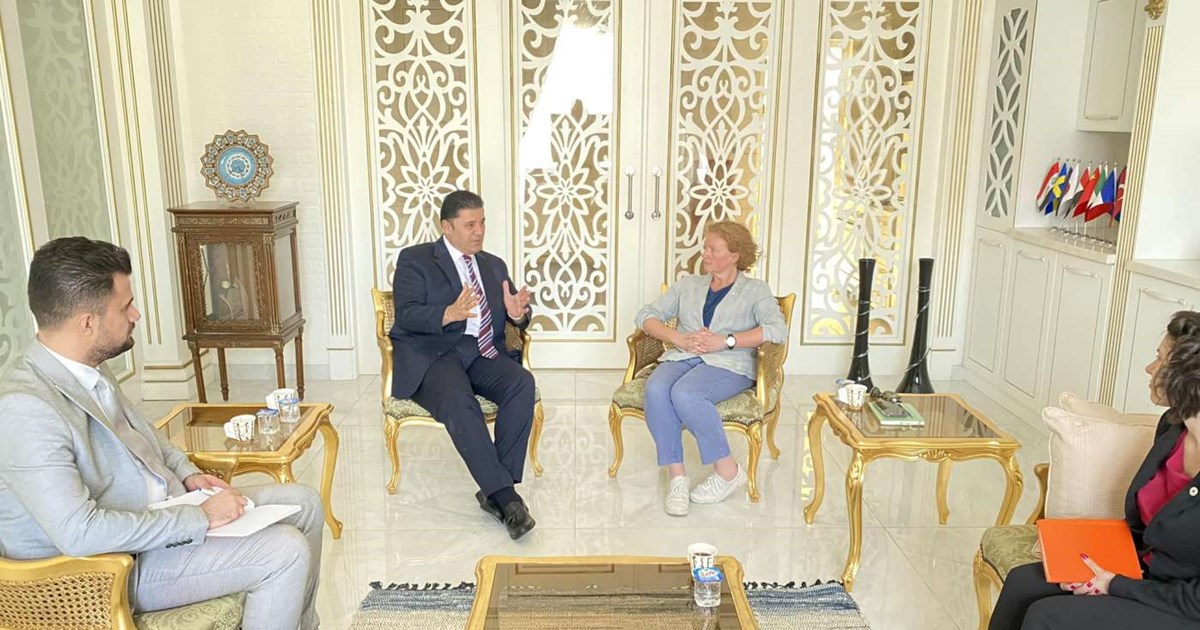ICRC Continues its Support to Advance the Implementation of the Regional

Dr. Dindar Zebari, KRG's Coordinator for International Advocacy, received Ms. Anna Hallford and Ms. Marica Tamanini from ICRC to underline a series of mutually important subjects. ICRC has been assistive in the Regional Plan through playing an advisory role in enhancing prison management, combating enforced disappearance and applying International Humanitarian Law (IHL) and International Human Rights Law (IHRL) in domestic laws.
HL sets out rules for state and non-state actors during armed conflicts. IHRL furnishes a series of obligations on the state in relation to the governed. The latter is used during peace and war. IHL identifies legitimate and illegitimate targets during wartime. The core sources of IHL are customary international law, Hague Conventions, and the four Geneva Conventions. IHRL is based on the treaty bodies that address various freedoms and stipulate individual and collective rights (CEDAW and other UN committees). IHL covers four fundamental principles during armed conflicts: distinction (between civilians and combatants, and between civilian objects and military objectives); proportionality (attacks must not incur collateral or indiscriminate damages); proper warnings before the attacks; and military necessity (the actions must not lead to superfluous injuries and unnecessary sufferings).
Because it is based on customary international law, it is obligatory for all states to integrate IHL. In this respect, ICRC has drawn the blueprint of a three-year plan in coordination with the Ministry of Peshmerga. The plan focuses on improving the education, training, and doctrine of the Peshmerga forces parallel to IHL principles. For this purpose, ICRC's team has engaged with the Media and Awareness Center and the Training Center of the aforementioned ministry.
